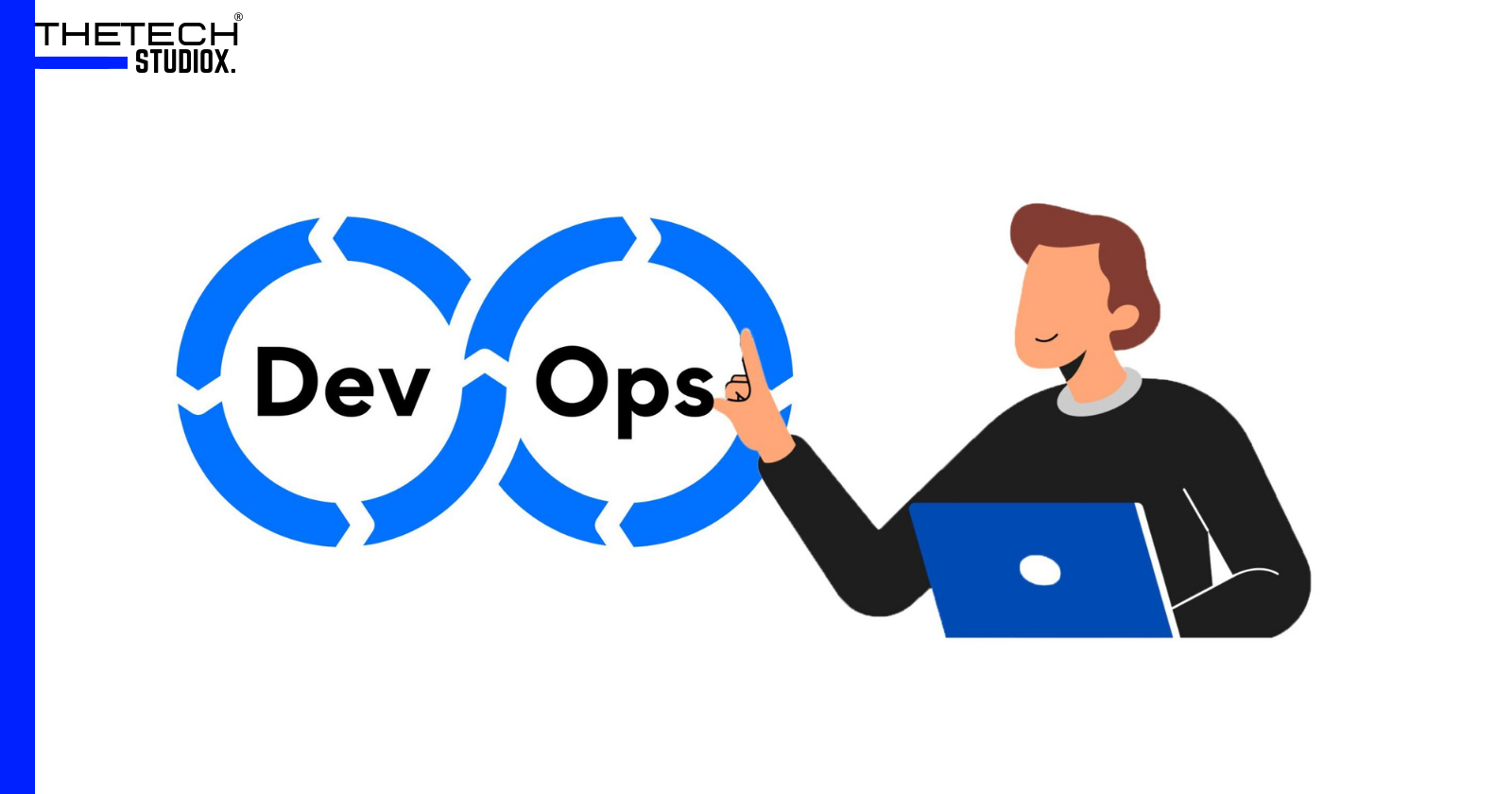Table of Contents
Introduction to DevOps Engineering
In today’s rapidly evolving technological landscape, software engineering has become more complex and dynamic than ever before. One approach that has gained significant popularity in recent years is DevOps engineering. But what exactly is DevOps, and why is it so significant in the realm of software engineering?
DevOps, short for “Development Operations,” is a software development methodology that aims to bridge the gap between software development and IT operations. It emphasizes collaboration, communication, and integration between developers, operations teams, and other stakeholders involved in the software development lifecycle. DevOps focuses on automating processes, improving efficiency, and delivering high-quality software products at a faster pace.
What is DevOps and its significance in software engineering?
DevOps is not just a set of tools or practices; it is a cultural shift in the way software development and operations teams work together. By breaking down silos and fostering collaboration, DevOps enables organizations to deliver software with greater agility, reliability, and scalability.
The significance of DevOps in software engineering lies in its ability to streamline the development lifecycle, from code creation to deployment and beyond. It promotes a continuous integration and delivery (CI/CD) approach, where software is developed, tested, and deployed in small, frequent increments. This iterative process allows for faster feedback, quicker bug fixes, and accelerated time-to-market.
Essential skills for a DevOps Engineer
Being a DevOps Engineer requires a unique set of skills that combines technical expertise with strong communication and collaboration abilities. Here are some essential skills that every DevOps Engineer should possess:
- Programming and Scripting: A DevOps Engineer should be proficient in programming languages like Python, Ruby, or Java, as well as scripting languages like Bash or PowerShell. This enables them to automate tasks, write infrastructure-as-code, and develop tools for continuous integration and deployment.
- System Administration: In-depth knowledge of Linux/Unix and Windows systems is crucial for a DevOps Engineer. They should be able to configure and manage servers, troubleshoot issues, and optimize system performance.
- Cloud Computing: DevOps often involves working with cloud platforms like Amazon Web Services (AWS), Microsoft Azure, or Google Cloud. Familiarity with cloud services, infrastructure provisioning, and containerization technologies like Docker and Kubernetes is highly beneficial.
- Networking and Security: Understanding networking principles, protocols, and security best practices is essential for a DevOps Engineer. They should be able to configure firewalls, manage network resources, and ensure the security of the infrastructure.
- CI/CD Tools: DevOps Engineers should be proficient in using continuous integration and delivery tools like Jenkins, GitLab, or Travis CI. They should understand the principles of CI/CD pipelines and be able to automate build, test, and deployment processes.
Understanding the responsibilities of a DevOps Engineer
The responsibilities of a DevOps Engineer can vary depending on the organization and project requirements. However, there are some common responsibilities that most DevOps Engineers are expected to fulfill:
- Collaboration and Communication: DevOps Engineers need to collaborate with developers, operations teams, and other stakeholders to understand their requirements and align the development and operations processes. Effective communication is crucial to ensure smooth coordination and integration.
- Infrastructure Automation: DevOps Engineers are responsible for automating infrastructure provisioning, configuration, and management. This includes writing scripts, using configuration management tools like Ansible or Chef, and leveraging infrastructure-as-code principles to treat infrastructure as software.
- Continuous Integration and Delivery: DevOps Engineers play a key role in setting up and maintaining CI/CD pipelines. They ensure that code changes are automatically built, tested, and deployed to production environments, reducing the risk of errors and enabling rapid feedback loops.
- Monitoring and Performance Optimization: DevOps Engineers monitor system performance, identify bottlenecks, and optimize resource utilization. They set up monitoring tools, analyze metrics, and proactively address issues to ensure optimal performance and scalability.
- Security and Compliance: DevOps Engineers should have a strong understanding of security principles and best practices. They implement security controls, manage access permissions, and ensure compliance with industry standards and regulations.
DevOps tools and their role in the software development lifecycle
DevOps is supported by a wide range of tools that facilitate collaboration, automation, and monitoring throughout the software development lifecycle. Let’s explore some popular DevOps tools and their roles:
- Version Control Systems: Tools like Git, Mercurial, and Subversion enable developers to manage source code, track changes, and collaborate effectively.
- Continuous Integration/Continuous Delivery (CI/CD) Tools: Jenkins, GitLab CI/CD, and Travis CI automate the process of building, testing, and deploying software changes, ensuring rapid and reliable delivery.
- Configuration Management Tools: Ansible, Chef, Puppet, and Salt-Stack provide a way to automate the configuration and management of infrastructure resources, making it easier to maintain consistency and scalability.
- Containerization Tools: Docker and Kubernetes enable developers to package applications and their dependencies into containers, making it easier to deploy and manage applications across different environments.
- Monitoring and Logging Tools: Tools like Prometheus, ELK Stack (Elasticsearch, Logstash, Kibana), and Splunk help monitor system performance, collect logs, and analyze metrics to ensure optimal performance and detect issues.
Examples of successful DevOps implementation
To better understand the impact of DevOps, let’s look at some real-world examples of successful DevOps implementations:
- Netflix: Netflix has embraced a DevOps culture to deliver its streaming services at scale. By adopting microservices architecture, automated testing, and continuous deployment, Netflix can quickly respond to customer needs and provide a seamless streaming experience.
- Amazon: Amazon, one of the pioneers of DevOps, uses its own cloud platform, AWS, to enable rapid innovation and frequent deployments. By leveraging automation and infrastructure-as-code, Amazon can scale its services efficiently while maintaining reliability.
- Etsy: Etsy, an e-commerce platform, credits its success to its DevOps practices. By focusing on automation, monitoring, and continuous delivery, Etsy can deploy code changes multiple times a day, resulting in faster feature releases and improved customer satisfaction.
These examples demonstrate how DevOps can drive innovation, improve efficiency, and deliver value to customers.
Mastering Azure DevOps: An overview
Azure DevOps, formerly known as Visual Studio Team Services (VSTS), is a comprehensive set of development tools offered by Microsoft to support the DevOps lifecycle. It provides a range of services, including version control, continuous integration, project management, and release management, all integrated into a single platform.
Azure DevOps enables teams to plan, develop, test, and deploy applications with ease. It offers features like Azure Repos for version control, Azure Pipelines for continuous integration and delivery, Azure Boards for project management, and Azure Test Plans for test management.
By mastering Azure DevOps, organizations can streamline their DevOps practices, improve collaboration, and accelerate the delivery of high-quality software products.
Exploring career opportunities in DevOps Engineering
With the increasing adoption of DevOps practices, the demand for skilled DevOps Engineers is on the rise. Organizations are looking for professionals who can bridge the gap between development and operations, automate processes, and drive continuous improvement.
A career in DevOps Engineering offers exciting opportunities to work with cutting-edge technologies, collaborate with cross-functional teams, and make a significant impact on the software development lifecycle. As a DevOps Engineer, you can expect to work on cloud platforms, automation frameworks, and collaboration tools, honing your technical skills while contributing to the success of software projects.
Conclusion: Embracing the DevOps mindset for successful software development
In today’s fast-paced and competitive software industry, embracing the DevOps mindset is crucial for organizations to stay ahead. By breaking down silos, automating processes, and fostering collaboration, DevOps enables teams to deliver high-quality software products at a faster pace.
Understanding the essential skills and responsibilities of a DevOps Engineer, as well as the role of DevOps tools in the software development lifecycle, is key to unlocking the potential of DevOps. By mastering the necessary skills, organizations can streamline their development processes, improve efficiency, and drive innovation.
So, whether you are a software engineer, a system administrator, or an aspiring DevOps professional, embracing the DevOps mindset can open up a world of opportunities and pave the way for successful software development.
FAQs
What is DevOps?
DevOps is a software development methodology that emphasizes collaboration, automation, and integration between development and operations teams to deliver software with greater efficiency and reliability.
What is the full form of DevOps?
DevOps is short for “Development Operations.”
What are some popular DevOps tools?
Popular DevOps tools include Jenkins, GitLab CI/CD, Ansible, Docker, Kubernetes, and Prometheus, among others.
What does a DevOps Engineer do?
A DevOps Engineer is responsible for automating infrastructure, setting up CI/CD pipelines, monitoring system performance, and ensuring smooth collaboration between development and operations teams.
What is Azure DevOps?
Azure DevOps is a set of development tools offered by Microsoft to support the DevOps lifecycle, including version control, continuous integration, project management, and release management.




[…] and traffic. This article explores the scalability challenges in Microservices Architecture from a DevOps perspective, diving into the reasons for scalability, the role of microservices architectures, […]
[…] Also Read: Decoding DevOps Engineering: Understanding the Skills and Responsibilities […]
[…] DevOps and cloud computing have revolutionized the way software applications are developed, deployed, and maintained. DevOps engineers bridge the gap between development and operations teams, ensuring smooth collaboration and efficient software delivery. They work with tools like Docker or Kubernetes and focus on automating processes and improving scalability. […]